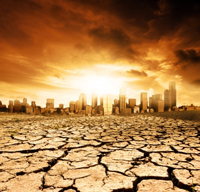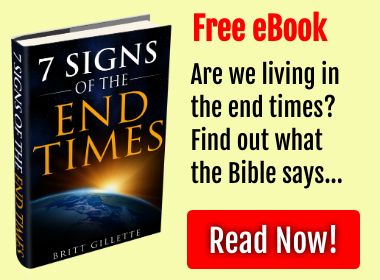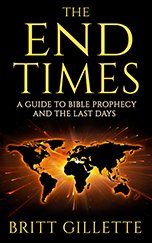 |
 |
|
|
A Global Food Crisis is Unavoidable
In January, I wrote about a coming global famine. The political push to move from fossil fuels to renewable energy, coupled with COVID shutdown supply and demand distortions, resulted in much higher energy prices. This was particularly true in Europe where the accelerated push for green energy led to a surging energy crisis. Asking, "What does this have to do with rising food prices?," I pointed to this Zero Hedge article which stated: "You can't make fertilizer without urea and natural gas. As the price of either of these goes higher (both are), it significantly impacts the price of fertilizer. The price of fertilizer impacts in turn the price of food. This is because fertilizer is the second largest cost component of most agricultural production. The first being... you guessed it, diesel." Entering 2022, rising energy costs had driven up prices for both diesel and fertilizer. This led to increased food production costs. Those, in turn, impact the feed cost for cattle, hogs, chickens, and other animals. This means higher costs for meat producers. Global supply chain issues are another reason we saw rising food prices. While increased demand due to COVID lockdowns and hoarding both played a factor, the majority of food shortages were due to problems rippling through the global supply chain. In summary, as we entered 2022, we were already facing a major food crisis, both in terms of supply and price. However, in that same article, I warned it could get much worse. "Rumors of war" were everywhere - Russia/Ukraine, China/Taiwan, and Iran/Israel. Back then, I wrote: "If any of these areas erupt into war, the result will be a disaster for the global economy. Oil prices will go much higher. Global trade will contract. Supply chains will break down even further, and food prices will skyrocket. Worse than that, a major conflict could lead to food shortages throughout the world. Is this what China is preparing for?" That last sentence referenced China's hoarding of grain. Coming into the year, China held 69% of global maize reserves, 60% of global rice reserves, and 51% of global wheat reserves. Why did China stockpile so much food? In hindsight, it's clear. They knew the Russian invasion of Ukraine was coming, and they knew the impact such a conflict would have on the global food supply. The Post-Invasion Global Food MarketEven now, most people fail to recognize the dire consequences of Russia's attack on Ukraine. The impact goes far beyond the battlefields of Eastern Europe, effecting every nation on the planet. The war in Ukraine has transformed a situation where global food supplies were tight into an unavoidable global food crisis. Why? Below is a list of six reasons 2022/2023 will be an absolute disaster for the global food supply. 1) Sanctions - The sanctions the U.S. and its allies put in place to punish Russia will have serious consequences for the global food market. Russia produces far more than oil. It's also the earth's largest wheat exporter, accounting for 18% of global sales. And fossil fuels also play a major role in food production. Diesel fuel powers farm equipment as well as the trucks that bring food to market, and natural gas is a critical component in the production of fertilizer. In short, the sanctions placed on Russia will strain global supply chains and increase the price of agricultural commodities wherever they are grown. 2) Poor Harvests - The sanctions kick in at a time when global food supplies are already tight. Now, extreme drought threatens to destroy the winter wheat crop in Kansas, Oklahoma, and Texas. Half of U.S. wheat production is hard red winter wheat. A reduced crop will put further pressure on food prices. Unfortunately, the U.S. isn't alone. China's Minister of Agriculture and Rural Affairs, Tang Renjian, cited heavy rainfall last year for delaying the planting of around one-third of China's normal wheat acreage. According to Tang, "a survey of the winter wheat crop taken before the start of winter found the amount of first- and second-grade crop was down more than 20 percentage points." In addition to droughts and poor harvests, a bird flu outbreak is threatening poultry production on a global scale. Because of an outbreak in Israel, "authorities estimate about 600,000 hens may need to be destroyed to contain the virus." In the United States, the bird flu outbreak "has already resulted in the deaths of almost 2.8 million birds" (most of them chickens or turkeys). This has a direct impact on the supply of eggs, chicken, and turkey - driving up food prices and creating product shortages. 3) The Ukrainian Harvest - With Ukraine under siege, how many farmers do you think are planting their fields? Not many. Even if they do manage to plant and harvest, how will their produce get to market? The invasion devastated roads and infrastructure throughout the country. This will have a dramatic impact on global food supply. Ukraine is the world's 5th largest wheat exporter, accounting for 7% of global sales in 2019. 71% of Ukraine's land is agricultural. For centuries, they've been known as "the bread basket of Europe," and some countries are wholly dependent on Ukraine for food supplies. 4) Black Sea Shipping - Because of the war, Black Sea shipping is almost non-existent. Insurance rates for ships entering the Black Sea are sky high. Even if they wanted to get into the area, it's simply not economical for ships to do business in the Black Sea. These empty shipping lanes translate into dire consequences for the world. Together, Russia and Ukraine account for 25% of global wheat sales. Moreover, around "one-fifth of the corn trade and 12% of all calories traded globally come from Ukraine and Russia." All that food can't make it to the rest of world. War and sanctions have brought regional food exports to a screeching halt. 5) Food Protectionism - Even if the Black Sea re-opens tomorrow, the food exports aren't coming. Why? Because the war has caused a cascade of nations to ban food exports in the name of domestic food security. For this very reason, Ukraine banned all agricultural exports. Russia also banned exports. According to Interfax, "Russia's Agriculture Ministry said the country could ban wheat, rye, barley and corn exports from March 15 to June 30." Meanwhile, Argentina (the world's top exporter of processed soy products) suspended soybean meal and oil exports. Along with Ukraine and Russia, Argentina is part of a growing list of countries banning exports of agricultural goods. Others include Moldova, Hungary, Serbia, Algeria, Indonesia, Turkey, and others. 6) The Fertilizer Shortage - As mentioned previously, you can't make fertilizer without urea and natural gas. Russia is the world's top exporter of both. Not surprisingly, Russia is also the world's #1 exporter of fertilizer. On March 10, Russia announced the suspension of fertilizer exports. Think about the implications of that. At a time when global food prices are already at all-time highs, when Ukraine's massive grain production might be lost for the year, and when global supply chains are in a state of chaos, the world's top fertilizer exporter won't be supplying fertilizer. I don't think the world fully understands the implications yet. According to The Epoch Times: "Russia produces 50 million tons of fertilizer every year, accounting for 13 percent of the world's total. The country is a major producer of potash, phosphate, and nitrogen-containing fertilizers which serve as major crop and soil nutrients. Amid Russia's invasion of Ukraine, the cost of fertilizer has already risen significantly across the globe and is expected to further impact the cost of goods and push food prices higher. However, even before the invasion, fertilizer prices had risen drastically in part due to the rising gas costs which are needed to ship fertilizers across countries and continents." Of course, Russia notes the ban on exports will come with exceptions. "Friendly countries" will continue to receive fertilizer from Russia. According to Bloomberg, Brazil is the world's top exporter of soybeans, coffee, sugar, and a host of other agricultural commodities. They rely on imports for 85% of their fertilizer needs, and 28% of that comes from Russia and Belarus. If Brazil doesn't get fertilizer, the world doesn't get Brazil's soybeans, coffee, and sugar. Making matters worse, on Monday the AP News reported that a Canadian Pacific rail worker strike has brought all of Canadian Pacific's trains to a standstill. The Canadian Pacific railway carries 70% of the potash produced in North America. Needless to say, fertilizer will be in short supply this planting season, and the impact on global food production cannot be overstated. Famine is Now UnavoidableThe only question is how high food prices will go and how severe the food shortages will be. The following quotes should serve as a wake-up call to anyone who takes food availability for granted. The year ahead will be difficult to say the least. In this article, Fox Business interviewed Peter Zeihan, a geopolitical analyst and author. The following passage is from that article: "'All three source materials that go into fertilizer (phosphate, nitrogen, potash) are subject to abject shortage. And even if the war were to stop tomorrow, it's already too late. It's too late for the planting season for the Northern Hemisphere this year.' Zeihan forecasted that the crisis will hit Brazil, Africa, the Middle East and South Asia the hardest as they will likely see significantly lower yields "than what is necessary to support the global population." "And as food prices rise, as they've been for the last two weeks - and pretty sharply - farmers will do what farmers do. They will plant what they think that they can grow for the greatest bang for their buck," Zeihan said. "So, I can see (the United States) increasing our production and our exports by a small amount. But the scale of what we're talking about here is insufficient food for hundreds of millions of people." Think about that. "Lower yields than what is necessary to support the global population" and "Insufficient food for hundreds of millions of people." You can't disrupt 12% of the global calories Russia and Ukraine produce and not have an epic disaster. Pray for God to provide everyone with what they need, and pray we can avert famine on a mass scale. What Happens Now?Henry Kissinger once said, "Control oil and you control nations; control food and you control the people." While the western media endlessly cites Putin's invasion of Ukraine as a "miscalculation," I ask you to consider another possibility. Perhaps this was Putin's calculation from day one. Russia is the leading producer of vast natural resources and raw materials the world needs. This gives Putin immense leverage.
Remember, Putin said "friendly countries" will be exempt from Russia's fertilizer ban. In other words, stick with Putin, and you'll eat. Turn against him, and you might starve. Putin understands the power he wields. He can use it to evade sanctions, possibly break up NATO, and realign the entire world power structure. As an example, read this article which outlines Turkey's willingness to circumvent sanctions. Turkish President Erdogan is in regular contact with Putin. He's offered to settle trade in rubles, Chinese yuan, or gold - anything to get the grain vital for feeding his people. As the article states, "Erdogan also raised the problem of the 30 ships that are supposed to bring sunflower oil and wheat to Turkey but are currently stuck in the Sea of Azov. Russia is by far Turkey's most important grain supplier. In 2020, it exported 7.7 million tons of wheat to Turkey, accounting for 75 percent of its imports." Turkey is a key member of NATO, yet they are completely dependent on Russia for their food supply. With the U.S. and its allies demanding nations pick a side in the conflict and abide by sanctions, whose side do you think Erdogan will ultimately choose? Will he chose the U.S., starve his country, and risk a revolution that throws him out of power? Or will he choose Russia, obtain food security for his country, and cement his place of power? I think the answer is obvious. A new geopolitical order is forming. In all likelihood, Russia and China have formed a secret alliance. I believe China stockpiled grain because it knew of Russia's plan to invade Ukraine. Perhaps China's invasion of Taiwan is next. Russia is a natural resource and raw materials superpower. China is a manufacturing powerhouse. Together, they make a formidable alliance capable of challenging the United States and its allies for economic and military supremacy. The Stage is Set for the End TimesUnfortunately, a worldwide famine appears to be on the horizon. The Bible warned of this long ago. It says a global famine will strike the world during the Tribulation. This famine will follow a global war (Revelation 6:4). In the aftermath, people will be desperate to survive. The Bible says in that time an entire day's wages will only buy enough food to survive (Revelation 6:5-6). Is the coming famine the same famine from Revelation 6? I don't know. But it could be. In January, I wrote: "When this happens, it's possible the Genesis story of Joseph and Pharaoh will play out a second time. Desperate for food, most of the world will willingly give their wealth and power to anyone who can feed them. Just as in ancient Egypt, when the dust finally settles, one man will control everything." Right now, Vladimir Putin wants to be that man. The Bible says the Antichrist will succeed where Putin fails. The signs of the times are all around us. The world is set up to experience a global war (Revelation 6:4), global famine (Revelation 6:5-6), and mass death (Revelation 6:8) on a scale we've never seen. All the signs Jesus and the prophets said to look for are present today. We're in the midst of a global pandemic (Luke 21:11). Israel is back in the land (Jeremiah 23:7-8). The Jewish people are back in Jerusalem (Luke 21:24-28). And the Gospel is being preached throughout the world (Matthew 24:14). Time is short. Spread the Gospel while you still can. Jesus is coming. Britt Gillette is the founder of End Times Bible Prophecy and the author of multiple books. Receive his book 7 Signs of the End Times for FREE when you sign up for his free Substack. Return to the top of A Global Food Crisis is Unavoidable Return to the End Times Bible Prophecy Website Homepage
|
Now Available! |
|
Search This SiteEnd Times TopicsBible ProphecyTechnologyAdditional TopicsArticle ArchiveAbout ETBPWe're Now on Substack!
|
||
|
| ||





